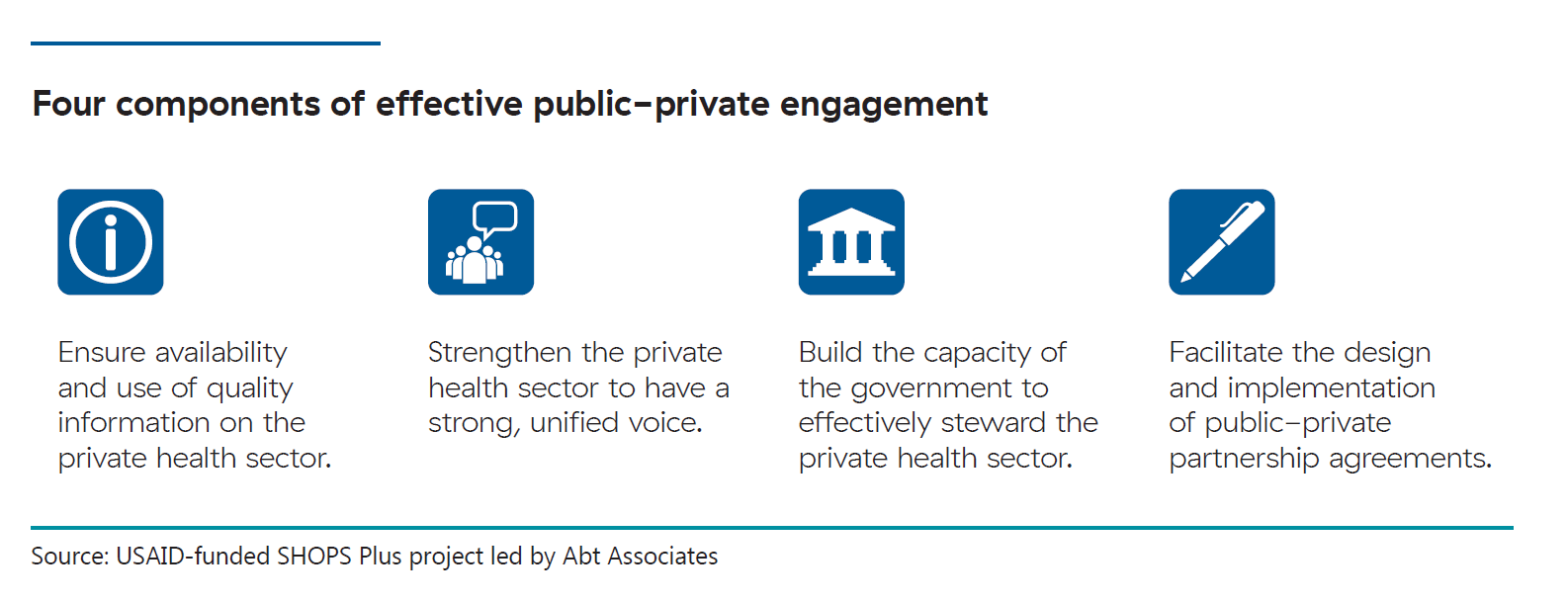Tips for building effective and sustainable public-private engagement
SHOPS Plus published practical tips for donors and implementing partners from its five years of work in public-private engagement. The brief is the first in a new series, Accelerating Private Sector Engagement, that shares insights from USAID’s flagship initiative in private sector health.
Focusing on four key components of effective public-private engagement (see graphic), the authors illustrate lessons using the project’s experience in Senegal, Tanzania, and Nigeria.

A common thread across the four components is frequent and purposeful dialogue between public and private sector entities. Effective dialogue brings stakeholders together to discuss needs and interests, break down barriers, and eliminate bottlenecks.
This brief offers concrete guidance for donors, especially USAID missions, on how to approach public-private engagement within their country strategic planning,” says the brief’s lead author, Marianne El-Khoury.
The ultimate goal of public-private engagement is to contribute to better outcomes by facilitating integration, reducing inefficiencies, and strategically using public and private resources.
The authors share insights from the following SHOPS Plus country programs.
Senegal
SHOPS Plus supported the first private health sector census in the country, which paved the way for greater collaboration between the two sectors. The project also helped the ministry of health transform its public-private partnership design process into one that is more structured, efficient, evidence-based, and trusted by public and private health sector representatives. Training and tools provided by the project strengthened the ability of the ministry to proactively engage with the private sector and identify opportunities for partnerships that address priority health challenges.
Tanzania
SHOPS Plus worked with privately operated retail outlets known as accredited drug dispensing outlets or ADDOs to help them organize into representative associations that could advocate for their interests, communicate needs, and ultimately provide a uniform voice to interact with the government. ADDOs sell essential health products and services, including family planning and child health products. There are more than 9,000 in the country.
Nigeria
Drawing from a successful model used in India by its predecessor project, SHOPS Plus collaborated with the national TB program and private provider associations that represented health workers to develop a public-private model in Lagos and Kano states.
SHOPS Plus adopted tailored public-private engagement approaches taking into account context and priorities. In addition to the activities described above, the project works in the Dominican Republic to contract with the national health insurance scheme, in Nigeria to increase private provider access to government training and family planning commodities, and in Kenya to work with private pharmacies to share data through the District Health Information System 2.
Learn more about our work in public-private engagement.